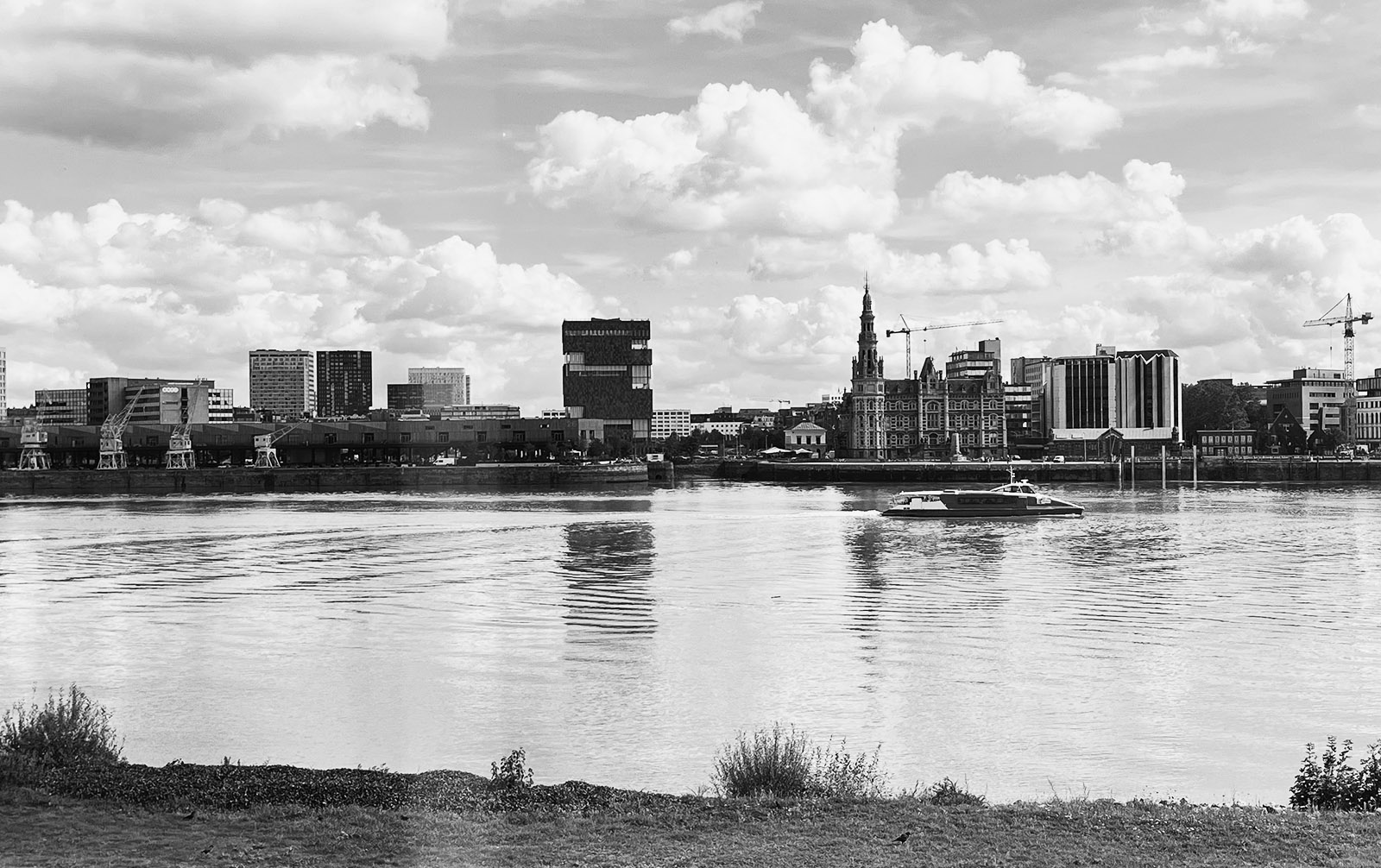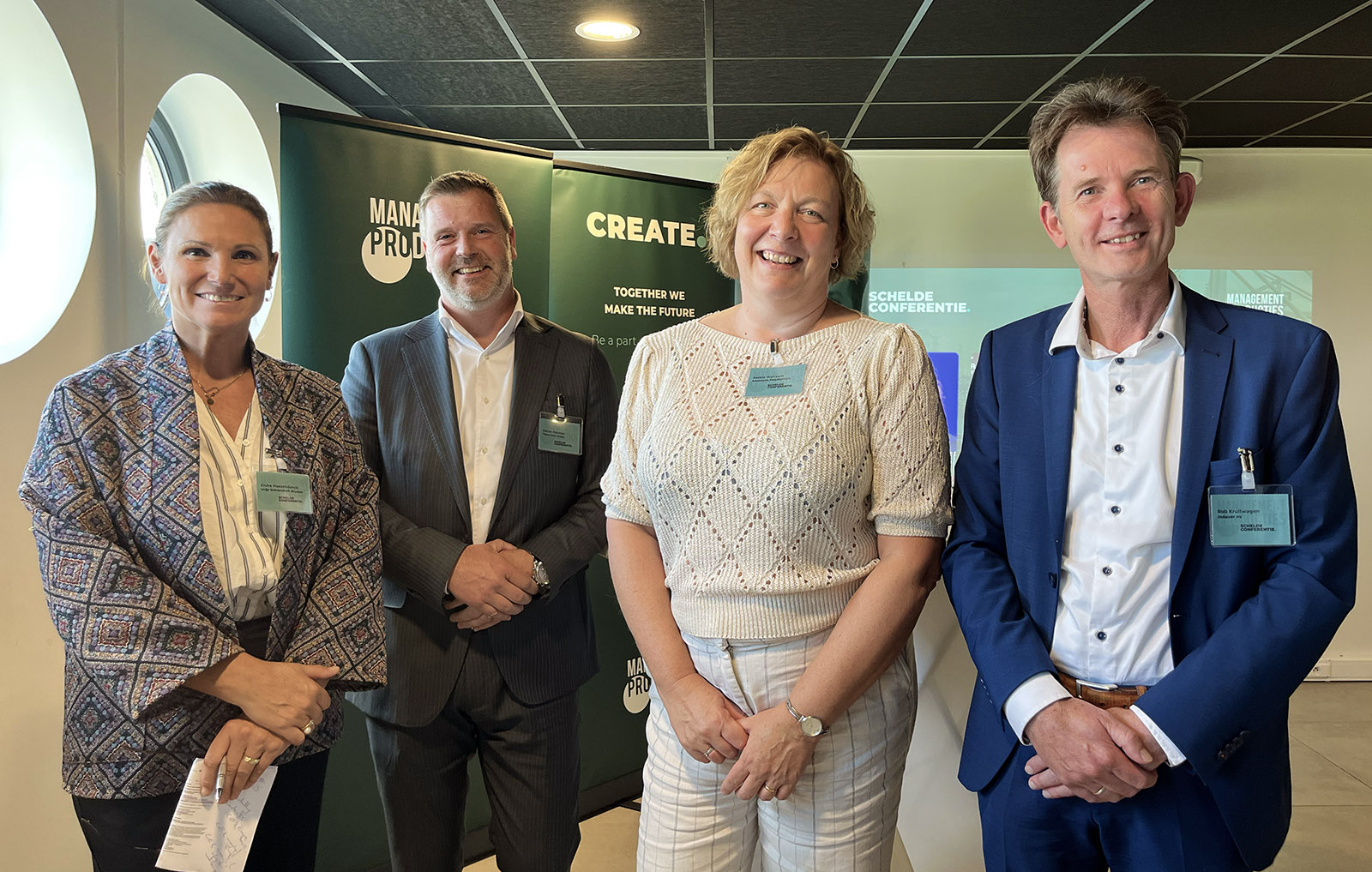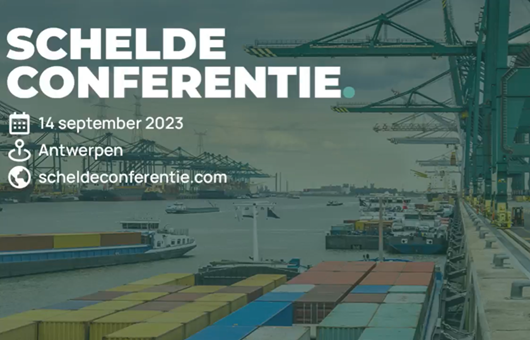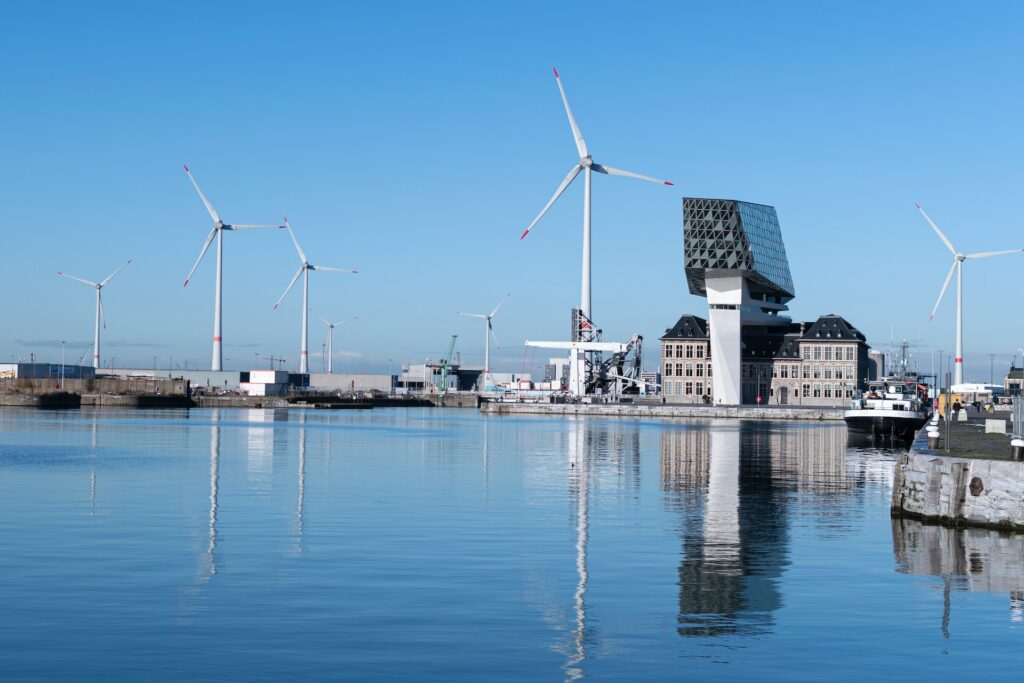The Schelde Conference 2023 on 14 September (Antwerp, Belgium) featured a debate on the circular economy. “Sustainability and environmental responsibility are key concerns for ports in the Schelde region. Companies are encouraged to reduce their CO2 emissions, minimize waste and ensure a safe and healthy working environment.”
What innovations are really driving reductions? New business models, new flows of goods, new factories. A whole new supply chain economy is emerging, with huge opportunities for innovation and value creation. We went to hear what challenges would emerge from the debate.
An unvarnished introduction
The moderator, Professor Elvira Haezendonck (VUB), opened this debate on the circular economy by responding to the earlier keynote by Professor Koen Schoors (UGent). Schoors had marvelled at the speed of the energy transition. “That will not be the case with the circular economy”, she warned, “We are talking about a process of many decades.”
Elvira Haezendonck also immediately formulated a bottleneck often mentioned by industry: “The regulations on waste and waste transport make it difficult or impossible to transport some materials. If this is already impossible, how can a cross-border and networked circular economy model work?”
Another recurring concern in the industry is the lack of rigorous regulation and licensing policies in relation to the new infrastructure needed to organise a circular economy. “In some cases, we need to better organise and speed up procedures in the public interest”, said Elvira Haezendonck. “How do you make the trade-off between individual, private and public interest in a reasonable way?”
In some cases, we need to better organise and speed up procedures in the public interest. How do you make the trade-off between individual, private and public interest in a reasonable way?
This is closely related to the issue of accessibility, which Professor Theo Notteboom (Professor of Port and Maritime Economics, University of Ghent and Antwerp University) also spoke about in his introductory plenary presentation. In particular, when he talked about the modal split and the balance that needs to be struck between the foreland and the hinterland, both logistically and in terms of energy.
During the introduction, moderator Elvira Haezendonck touched on two other key issues for the circular economy. “Reverse logistics is becoming more and more important, often with smaller volumes. How do we deal with this?” Haezendonck also warned of trade-offs. For example, the circular economy will require more energy. This means that the energy transition to renewable energy, which is in full swing, should not only replace current capacity, but create much more.
Professor Elvira Haezendonck concluded her introduction by urging ports to engage circular business developers. It is not only at the level of the companies that these skills are needed, but also on all other levels including the port authorities.
Regulations, permits and the race for circular infrastructure
In her first intervention, Saskia Walraedt (Director, Essenscia Polymatters) stressed that for the petrochemical cluster, defossilization – a word she prefers to ‘decarbonisation’ – of infrastructure is of enormous importance. New pipelines are needed. We need to be able to supply not only hydrogen, but also other materials. She made it clear that governmental support is needed, challenging sacred cows in order to ease approval policies. “We are slower than our neighbouring countries”, said Saskia Walraedt. “This also has to do with the complex Belgian model. Our Dutch neighbours manage to make progress in the field of chemical recycling and sometimes apply a temporary framework for this while waiting for European regulations. I notice that this does not work for us.”
Rob Kruitwagen (General Manager Municipal Solid Waste Services BeNe, Indaver) started on a positive note: “Ports as a cluster can become an important multi-hub to facilitate the circular economy. When it comes to pipelines, the ports and the Flemish government need to facilitate development, for example when it comes to hydrogen and CO2 backbones.” Indaver itself has already developed its own heat and steam networks. “We would like to expand that, but the whole approval process is often such a hurdle that it is discouraging. The regulatory framework must help to facilitate this progress.”
Steven Peleman (CEO, Triple Helix Group) also pointed the finger at the regulator. “We are sabotaging our own progress”, argued Peleman. He immediately pointed to a shortcoming in regulation. “The government needs expertise and commitment.” He cited an example where a licence was not granted because a prescribed 0% CO2 emission was exceeded by 0.02%.
To start looking at the whole system
The Belgian system stands in the way of a systemic approach, said Saskia Walraedt. For example, the authority for waste is regional, but the authority for materials is federal. There is also a lack of end-of-life awareness, which is crucial to keeping materials in our economy rather than having them disposed of. “We need to start thinking outside the existing value chain and look at the whole life cycle of a product, starting with design.”
Rob Kruitwagen echoed this statement, emphasising the importance of ecodesign. “We have to think through the whole life cycle of products, because unfortunately there is waste today. It’s not as if we can eliminate all risks in the circular economy.” He also saw an important duality. “Either a product is good for people and the environment, or people and the environment have to be protected from harmful consequences.” The latter will also remain a reality. “The zero risk measure may be a goal, but immediately setting it as an absolute norm, without then facilitating it, only blocks progress.”
Steven Peleman agreed. “Idealistic purism as a kind of religion leads to ruin.” Which he later illustrated with an example. “Today, all PET fractions have to be mechanically recycled. Sticking to that blocks progress, because there are other possibilities with PET materials in chemical recycling, but this is not allowed at the moment.”
‘Small is beautiful’ can become a guideline to create a regional dynamic in waste management. A new type of player should be allowed alongside the big companies. They can exist side by side and operate at different scales.
Peleman shared another insight related to this point of purism. “‘Small is beautiful’ can become a guideline to create a regional dynamic in waste management. A new type of player should be allowed alongside the big companies. They can exist side by side and operate at different scales.” Financing for small players operating in synergy with large groups should also be facilitated. “Currently, 85% of circular economy projects are only possible with subsidies. We need to pay attention to that as well.”
“We need to find the right scale and the right action radius for each waste stream”, Rob Kruitwagen added. “Green waste is more likely to be sourced locally, while at Indaver we are also active in a European network of waste processors for specific products.”
“In our chemical cluster, which is one of the largest in the world, we need large volumes”, said Saskia Walraedt. “Our cluster is export-oriented. So we need a lot of material and that has to be imported. Belgian waste and biomass is not enough. Again, the legislative framework is essential to make more business possible.”
The difficulty of choosing between priorities
Finally, Elvira Haezenzonck asked for the panelists’ top priority. The consensus was that it was difficult to choose between the many priorities. Saskia Walraedt wants us to put much more effort into collection. Rob Kruitwagen called for entrepreneurs to be entrepreneurial and hopes that the government can create an enabling, holistic framework for this. Steven Peleman reiterated his request to look at the financing component. Access to capital, even for projects with lower returns, needs to be facilitated in order to develop the circular economy in the long term.

About this panel discussion
The panel discussion was part of the The Schelde Conference 2023. This session which centered around the development of the circular economy in and around ports, was one of four such sessions.
Chair/moderator: Elvira Haezendonck, Professor, Free University of Brussels (VUB)
Panel:
- Saskia Walraedt, Director, Essenscia Polymatters
- Steven Peleman, CEO, Triple Helix Group
- Rob Kruitwagen, General Manager Municipal Solid Waste services BeNe, Indaver
(Note: no government agencies were represented in this panel.)
Organisor: Management Productions
Location: Royal Yacht Club of Belgium (RYBC), Antwerp (BE)
Photo (from left to right) Elvira Haezendonck (professor, Free University of Brussels (VUB)), Steven Peleman (CEO, Triple Helix Group), Saskia Walraedt (Director, Essenscia Polymatters), Rob Kruitwagen (General Manager Municipal Solid Waste Services BeNe, Indaver) © Floris Van Cauwelaert


